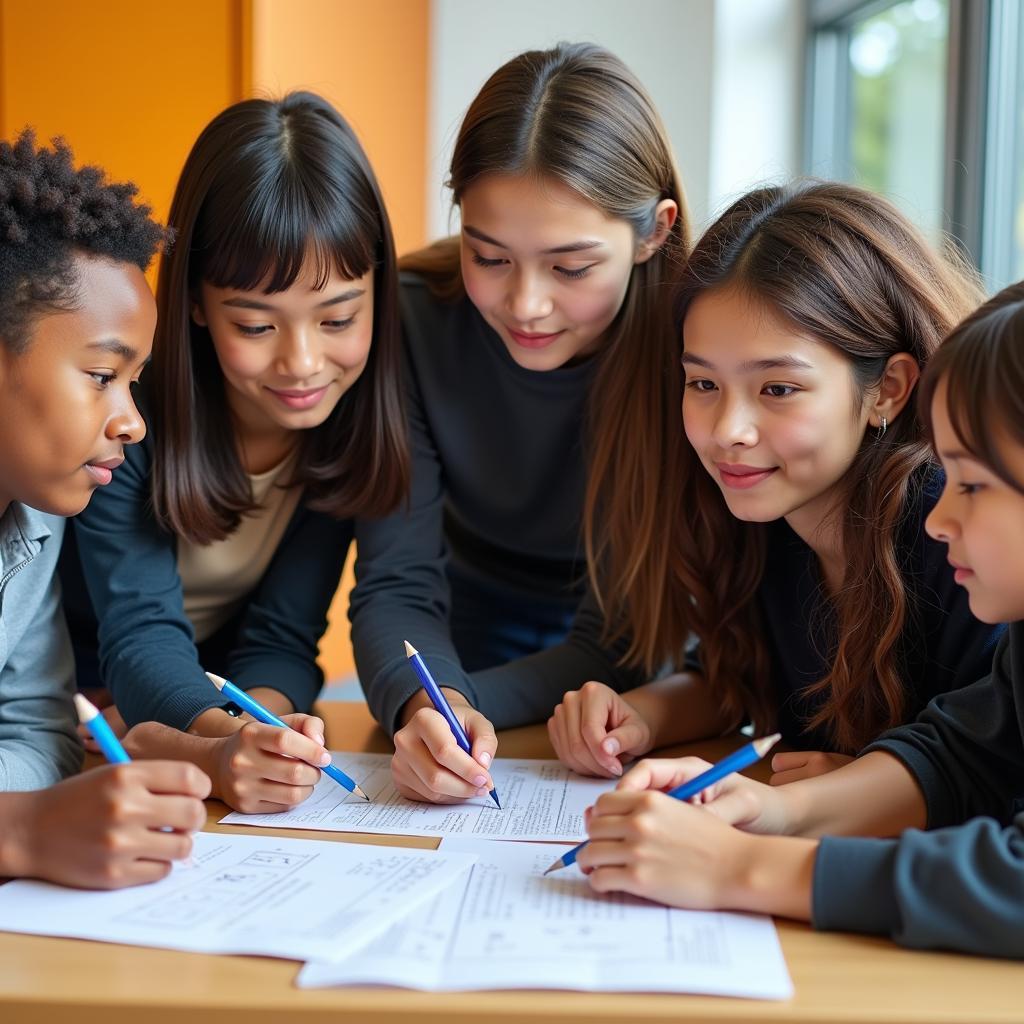Education And Society are inextricably linked, influencing each other in profound ways. Education shapes individuals, and individuals, in turn, shape society. This dynamic relationship is the cornerstone of progress, innovation, and ultimately, peace. By fostering understanding, empathy, and critical thinking, education empowers individuals to become active and responsible citizens, contributing to a more just and harmonious world. Investing in education is not just an investment in individuals; it’s an investment in a peaceful future for all.
Education empowers individuals to challenge societal norms, advocate for positive change, and build bridges across cultural divides. It provides the tools for critical thinking, problem-solving, and conflict resolution, which are essential for navigating the complexities of our interconnected world. Through education, we learn to appreciate diversity, understand different perspectives, and develop the empathy necessary for peaceful coexistence. More than simply imparting knowledge, education cultivates values of tolerance, respect, and cooperation, essential ingredients for a peaceful society.
The Power of Education in Fostering Peaceful Societies
What role does education play in promoting peace? Education equips individuals with the knowledge and skills needed to become active participants in building a more peaceful world. By promoting understanding and empathy, education helps break down prejudices and stereotypes that can fuel conflict. It fosters a sense of shared humanity, reminding us that despite our differences, we are all interconnected.
One crucial aspect of education for peace is sport education and society. Sports can teach valuable lessons about teamwork, fair play, and respect for others, transcending cultural and linguistic barriers.
Furthermore, education empowers individuals to become agents of change within their communities. By providing the tools for critical thinking and problem-solving, education enables individuals to identify the root causes of conflict and work towards peaceful solutions. It instills a sense of responsibility and encourages active participation in civic life, fostering a culture of peace and social justice.
Cultivating Global Citizenship Through Education
How can education promote global citizenship? Education can cultivate a sense of global citizenship by fostering intercultural understanding and cooperation. It exposes individuals to different cultures, perspectives, and ways of life, broadening their horizons and challenging ethnocentric views. By learning about other cultures, we develop a deeper appreciation for our shared humanity and the interconnectedness of our world.
Education also promotes critical thinking about global issues, such as climate change, poverty, and inequality. It empowers individuals to become informed and engaged global citizens, working towards solutions to these challenges.
jefferson educational society serves as a valuable resource for promoting dialogue and understanding.
 Education Promotes Global Citizenship
Education Promotes Global Citizenship
Addressing Inequality Through Education
Education is a powerful tool for addressing inequality. It can break down barriers to opportunity and empower marginalized communities. By providing access to quality education, we can create a more just and equitable society where everyone has the chance to reach their full potential. This, in turn, contributes to a more peaceful and stable world.
Education: A Catalyst for Peacebuilding
Education serves as a catalyst for peacebuilding by empowering individuals and communities to address the root causes of conflict. It provides the tools for dialogue, negotiation, and reconciliation, fostering a culture of peace.
special education in contemporary society 7th edition pdf free highlights the importance of inclusive education in building a more just and peaceful society.
“Education is not merely the acquisition of facts, but the cultivation of the ability to think,” said Dr. Amelia Sharma, renowned education advocate. Her words highlight the transformative power of education in shaping individuals and societies.
“By fostering critical thinking, education empowers individuals to challenge injustice and work towards a more peaceful world,” added Dr. Sharma.
The Importance of Lifelong Learning
Education is not confined to the classroom. Lifelong learning is crucial for personal growth and societal progress. By continually seeking new knowledge and skills, we can adapt to a rapidly changing world and contribute to a more peaceful and prosperous future.
zoological society of nj shows the interconnectedness of all living things, emphasizing the importance of environmental education in building a sustainable and peaceful future.
“Education is a journey, not a destination,” noted Professor David Lee, a leading scholar in peace studies. His words emphasize the ongoing nature of learning and its importance in shaping a peaceful world.
 Lifelong Learning for Peace
Lifelong Learning for Peace
multicultural education in a pluralistic society 11th edition pdf free offers valuable insights into the role of education in promoting intercultural understanding and peace.
In conclusion, education and society are intertwined, and education is a fundamental pillar for building a more peaceful world. By investing in education, we invest in a future where understanding, empathy, and cooperation prevail. Through education, we empower individuals to become agents of change, contributing to a more just, equitable, and peaceful society for all.
FAQ
- How does education promote peace?
- What is the role of education in conflict resolution?
- How can education address inequality?
- What is global citizenship education?
- Why is lifelong learning important for peace?
- How can we make education more accessible to everyone?
- What are some examples of successful peace education programs?
For support, contact us at Phone Number: 02043854663, Email: [email protected] or visit our address: Khu 34, Bac Giang, 260000, Vietnam. We have a 24/7 customer service team.